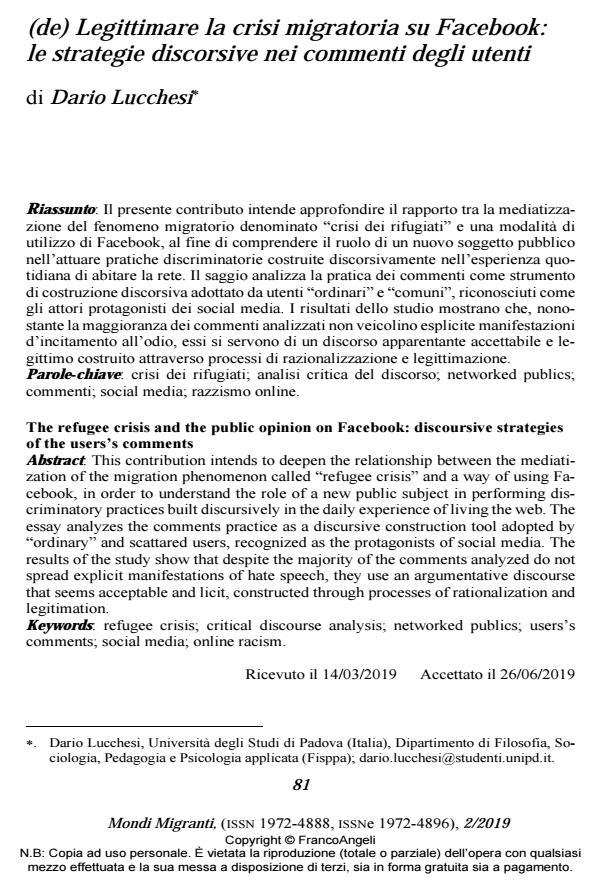The refugee crisis and the public opinion on Facebook: discoursive strategies of the users’s comments
Journal title MONDI MIGRANTI
Author/s Dario Lucchesi
Publishing Year 2019 Issue 2019/2
Language Italian Pages 19 P. 81-99 File size 250 KB
DOI 10.3280/MM2019-002005
DOI is like a bar code for intellectual property: to have more infomation
click here
Below, you can see the article first page
If you want to buy this article in PDF format, you can do it, following the instructions to buy download credits

FrancoAngeli is member of Publishers International Linking Association, Inc (PILA), a not-for-profit association which run the CrossRef service enabling links to and from online scholarly content.
This contribution intends to deepen the relationship between the mediatization of the migration phenomenon called "refugee crisis" and a way of using Facebook, in order to understand the role of a new public subject in performing discriminatory practices built discursively in the daily experience of living the web. The essay ana-lyzes the comments practice as a discursive construction tool adopted by "ordi-nary" and scattared users, recognized as the protagonists of social media. The re-sults of the study show that despite the majority of the comments analyzed do not spread explicit manifestations of hate speech, they use an argumentative dis-course that seems acceptable and licit, constructed through processes of rationali-zation and legitimation.
Keywords: Refugee crisis; critical discourse analysis; networked publics; users’s comments; social media; online racism.
- Argumentative dynamics in representations of migrants and refugees: Evidence from the Italian press during the ‘refugee crisis’ Dimitris Serafis, Carlo Raimondo, Stavros Assimakopoulos, Sara Greco, Andrea Rocci, in Discourse & Communication /2021 pp.559
DOI: 10.1177/17504813211017706
Dario Lucchesi, (de) Legittimare la crisi migratoria su Facebook: le strategie discorsive nei commenti degli utenti in "MONDI MIGRANTI" 2/2019, pp 81-99, DOI: 10.3280/MM2019-002005